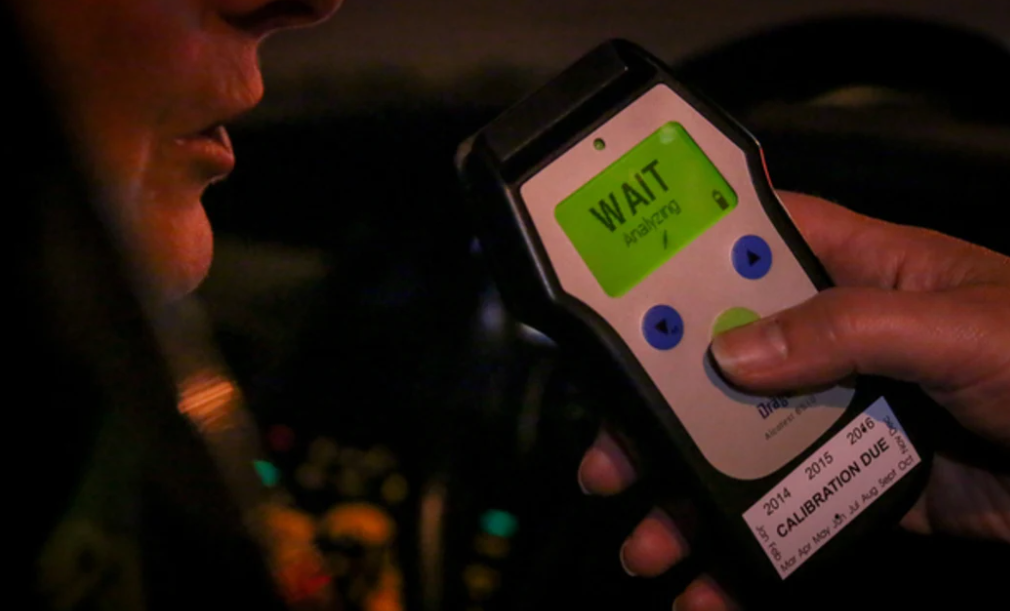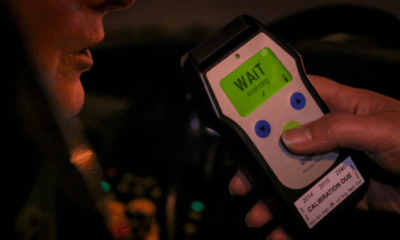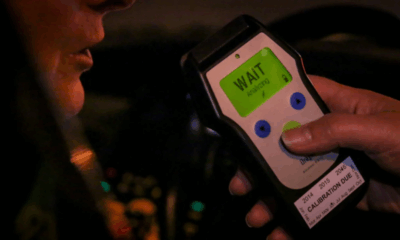Science
New Zealand Police Mandate Alcohol Breath Test Training Amid Scandal

Every police officer in New Zealand is now required to complete an online training module for alcohol breath testing. This directive follows an investigation into over 100 police staff suspected of falsifying test results. Reports indicate that approximately 120 officers are under scrutiny after **30,000 alcohol breath tests** were found to be “falsely or erroneously recorded.”
The issue came to light when police developed a new algorithm to analyze testing data, revealing discrepancies that the devices themselves could not identify. A memo issued to staff, which was reviewed by RNZ, highlighted that the “recent discovery” of these falsified tests has significantly impacted public trust in the police, including relationships with partner agencies.
Mandatory Training Implementation
In response to these findings, the **New Zealand Police Executive** has mandated that all constabulary staff complete the online training module by **December 4, 2023**. The module, which became available on the day of the announcement, is expected to take approximately **15 minutes** to complete. It covers proper device operation, data docking procedures, and emphasizes the importance of breath screening in ensuring road safety.
Acting Deputy Commissioner **Jill Rogers** addressed the media, stating that the training is crucial as the police prepare for the busy summer period. She emphasized that a professional approach to breath screening is vital for saving lives and maintaining public confidence in road safety efforts.
Investigations and Public Confidence
Rogers noted that the investigation into the falsified tests has raised concerns about public trust in the breath testing regime. She explained that some staff members had manipulated the device recording, either at the start or end of their shifts, inflating the number of tests logged. This was particularly evident when tests were conducted while officers were in moving vehicles, which allowed the algorithm to detect numbers that were “outside the normal parameters.”
The police are examining the rationale behind the falsifications. Rogers suggested that the motivations may involve staff wanting to meet performance targets by overstating their testing numbers. While she did not rule out the possibility of criminal investigations, she confirmed that no officers had been suspended during the ongoing inquiry.
On **Monday**, a police spokesperson indicated that the falsified tests had occurred nationwide. The police had exceeded their national target of **3.3 million tests** by approximately **900,000**, raising questions about the integrity of the data collection process.
Agency Responses and Next Steps
The **NZ Transport Agency (NZTA)** expressed concern over the issues surrounding breath testing, emphasizing that effective drink-driving enforcement is crucial for road safety. A spokesperson for NZTA revealed that they were first informed of the situation in **September** and are closely monitoring the developments.
They stated that there is “clear evidence” that increased enforcement levels correlate with better road safety outcomes. An independent evaluation of the **Road Policing Investment Programme (RPIP)** is currently underway, which will inform future decisions regarding activity, targets, and program development.
The **Ministry of Transport** has also been briefed on the situation and is working collaboratively with the NZTA and police to monitor the issue closely.
As New Zealand’s police force faces this significant challenge, the emphasis remains on restoring public confidence and ensuring the integrity of its operations. The completion of the mandatory training module is a crucial step in addressing the recent failures and reinforcing the importance of accurate alcohol breath testing in safeguarding road users.
-

 Sports2 months ago
Sports2 months agoNetball New Zealand Stands Down Dame Noeline Taurua for Series
-

 Entertainment2 months ago
Entertainment2 months agoTributes Pour In for Lachlan Rofe, Reality Star, Dead at 47
-

 Entertainment4 weeks ago
Entertainment4 weeks agoNew ‘Maverick’ Chaser Joins Beat the Chasers Season Finale
-

 Sports5 days ago
Sports5 days agoEli Katoa Rushed to Hospital After Sideline Incident During Match
-

 Sports2 months ago
Sports2 months agoSilver Ferns Legend Laura Langman Criticizes Team’s Attitude
-

 Politics1 month ago
Politics1 month agoNetball NZ Calls for Respect Amid Dame Taurua’s Standoff
-

 Entertainment2 months ago
Entertainment2 months agoKhloe Kardashian Embraces Innovative Stem Cell Therapy in Mexico
-

 World3 months ago
World3 months agoPolice Arrest Multiple Individuals During Funeral for Zain Taikato-Fox
-

 Sports3 months ago
Sports3 months agoGaël Monfils Set to Defend ASB Classic Title in January 2026
-

 Sports3 days ago
Sports3 days agoJamie Melham Triumphs Over Husband Ben in Melbourne Cup Victory
-

 Entertainment1 month ago
Entertainment1 month agoTyson Fury’s Daughter Venezuela Gets Engaged at Birthday Bash
-

 Sports1 month ago
Sports1 month agoHeather McMahan Steps Down as Ryder Cup Host After Controversy


















